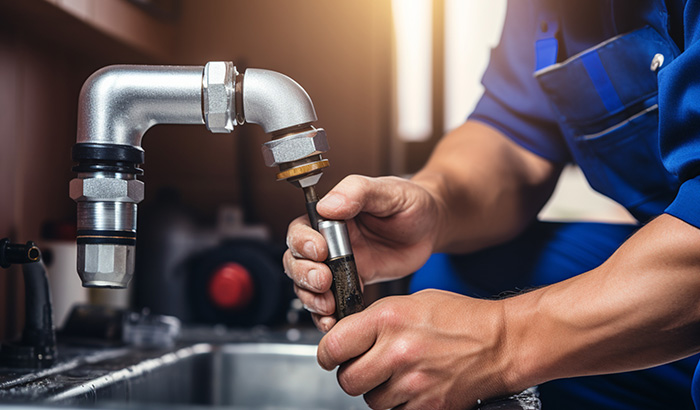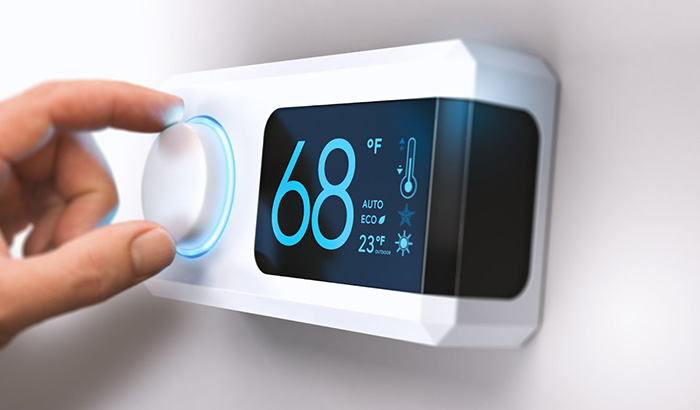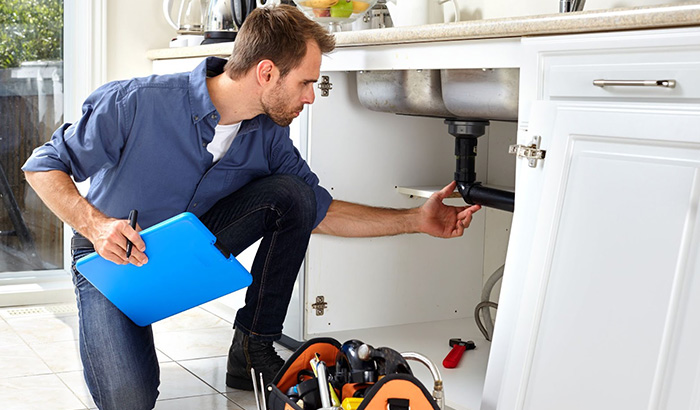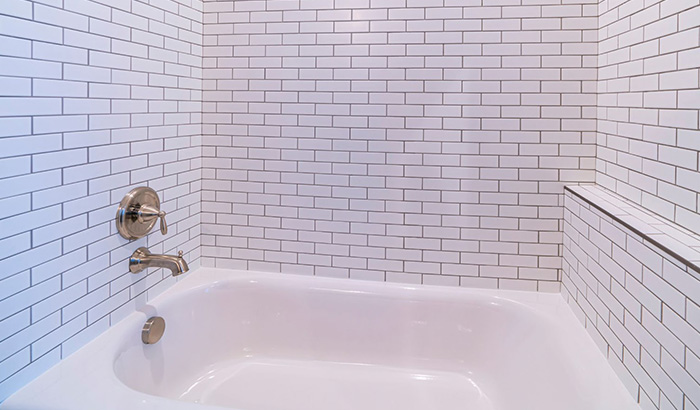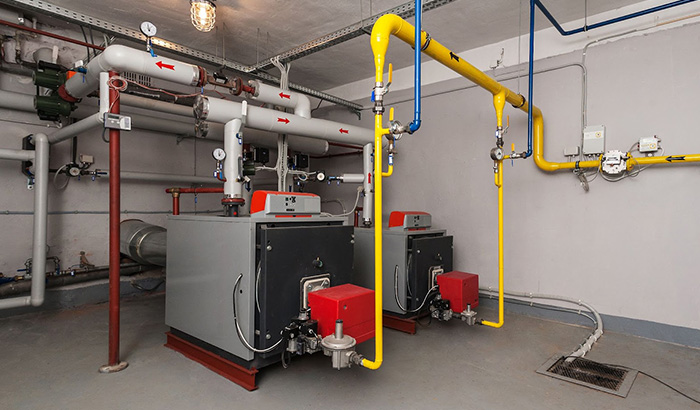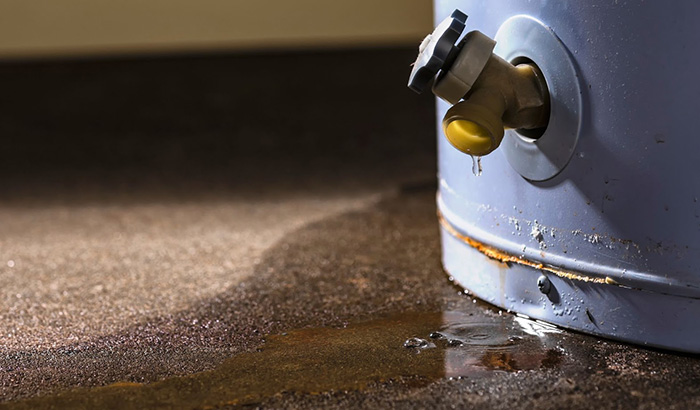Plumbing leak detection can save your property from costly damage and keep your home functioning at its best.
Water damage from broken pipes is one of the leading causes of property damage and loss. It causes serious problems like mold and drywall rot and could seriously impact the foundation and structure of your property. Water damage is also a magnet for critters like carpenter ants and termites that love to make their home in damp wood.
As a homeowner, few occurrences are as frustrating as finding a leaky pipe. Not only is a leaking pipe intimidating, but it can also cause so much more damage than you might imagine. Thankfully, there are easy things you can do to prevent your pipes from leaking, and they are much easier and less time-consuming than plumbing leak repair.
Keeping your property in tip-top shape is likely one of your highest priorities, and quick plumbing leak detection and effective water leak detection tools can be your best friend. Today, we’re diving into some of the best plumbing leak repair and prevention suggestions that will help keep your pipes intact and save you money.
Continue scrolling to learn more about how you can prevent home leaks.
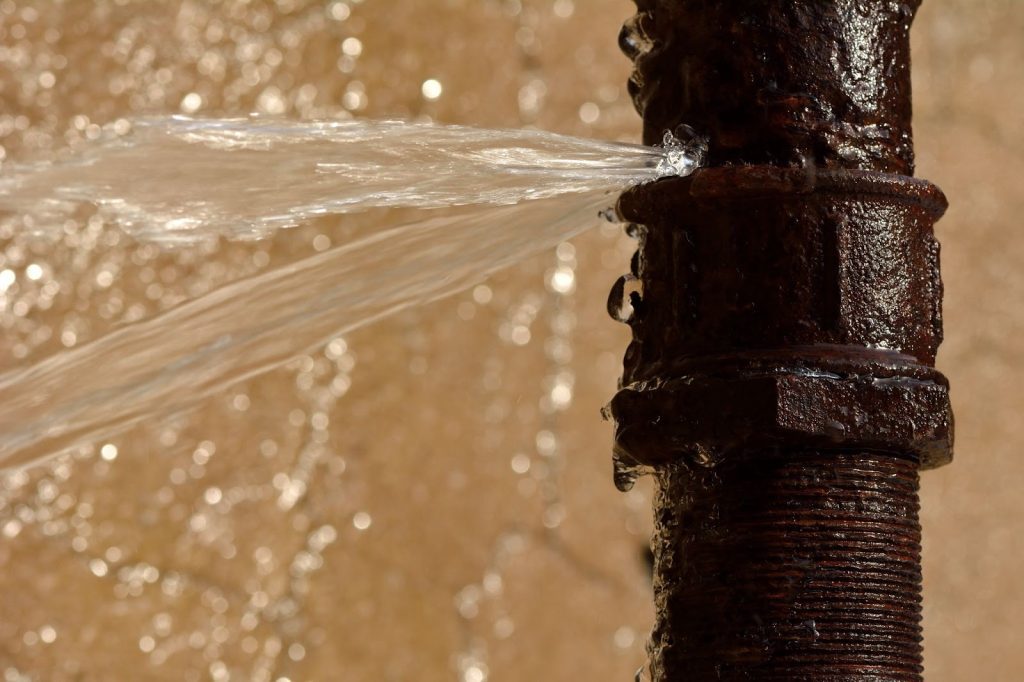
Plumbing Leak Detection: 6 Tips You Need to Know
Dealing with water damage and leaky pipes in your property is often costly. The great news is that it doesn’t have to be something you need to worry about if you simply take preventative measures that will help you sidestep any of these watery issues.
- Inspect outdoor faucets and hoses — Before the cold weather creeps in, there are some maintenance-type things you need to complete around your house. One of the more important items on that list is checking out your faucets and hoses.
Once the temperatures drop, you must disconnect your garden hoses from your faucets. When conditions are just right, the remaining water in a hose will freeze and burst or stop the water flow. So, before the winter months hit, take some time to empty and put away your hoses for the season. - Check appliance hoses and pipes often — On the topic of hoses, don’t forget there are likely more than just garden hoses in your house. Pipes and hoses hooked up to your appliances should be inspected regularly.
If you monitor your indoor appliances’ hoses and pipes often, you can spot wear and tear and damage before a leak can occur. It’s also smart to replace the hoses on your appliances, like your dishwasher, refrigerator, and washing machine, every five years or so, even if they appear to be in decent condition.
Most homeowners’ insurance plans exclude certain types of water damage, such as water damage caused by pipes that were not properly maintained. Staying on top of hose and pipe upkeep may save you a lot of time and headaches down the road. - Keep trees and other plantings trimmed and managed — Trees and bushes around the base of your house and throughout your yard that are overgrown can be more problematic than just being an eyesore. Overgrown trees and bushes are able to clog pipes, resulting in costly plumbing issues. A worst-case scenario would involve wastewater and sewage seeping up into your house.
Roots have the strength and ability to wrap around pipes and cause significant damage. By trimming your trees and bushes and planting your major landscaping at least 20 feet away from your pipes and clear of your drainfield, you could help avoid plant-related plumbing issues. - Insulate pipes to avoid corrosion — One of the best ways to prevent pipe corrosion is to make sure that you insulate your pipes. Adding wear pads or pipe shoes to your pipes helps keep the metal from touching, creates a necessary buffer, and allows your pipes to stay durable longer.
Managing your water temperature and pH levels will also impact your pipes and the potential for corrosion. When your water is too hot, it could lead to corrosion. Using cooler temperatures will help regulate this. Moreover, a pH between 6.5 and 8.5 is ideal for keeping your pipes working well. - Shut off water when necessary — If you plan to leave home for a period of time, you may want to consider turning off the water main while you are away. The water main is what supplies water to your entire house. Water comes through the water main into your property and goes through various pipes to supply water to your kitchen, bathrooms, laundry room, and other parts of your house.
Even if you don’t plan to vacate your house for a significant period, all homeowners need to locate the water main valve in their house and learn how it works before any issues arise. Just think— what if a pipe bursts in your basement, and water starts pouring onto the floor, and you don’t know how to shut off the water? Knowing how to take action will help lessen potential damage. - Invest in a water softener — Hard water makes cleaning just about anything a challenge. This may be your laundry, dishes, and even your hair and body. If you have to use more laundry soap than normal to get your items clean or see a white-colored buildup on your faucets and shower heads, you probably have hard water.
Hard water is naturally filled with minerals like magnesium, calcium, and more. Hard water is hard on laundry, bodies, and dishes, and it can be especially damaging to the plumbing system in your house and home appliances.
Buildup from hard water can line the interior of your pipes and shrink their width, causing pressure and strain on your plumbing system, which could lead to leaky pipes. Thankfully, by installing the right water softener for your home, you can prevent these issues and remove things like iron, chlorine, sediment, scale, and rust from your water.
3 Tips on How to Catch Leaks Early
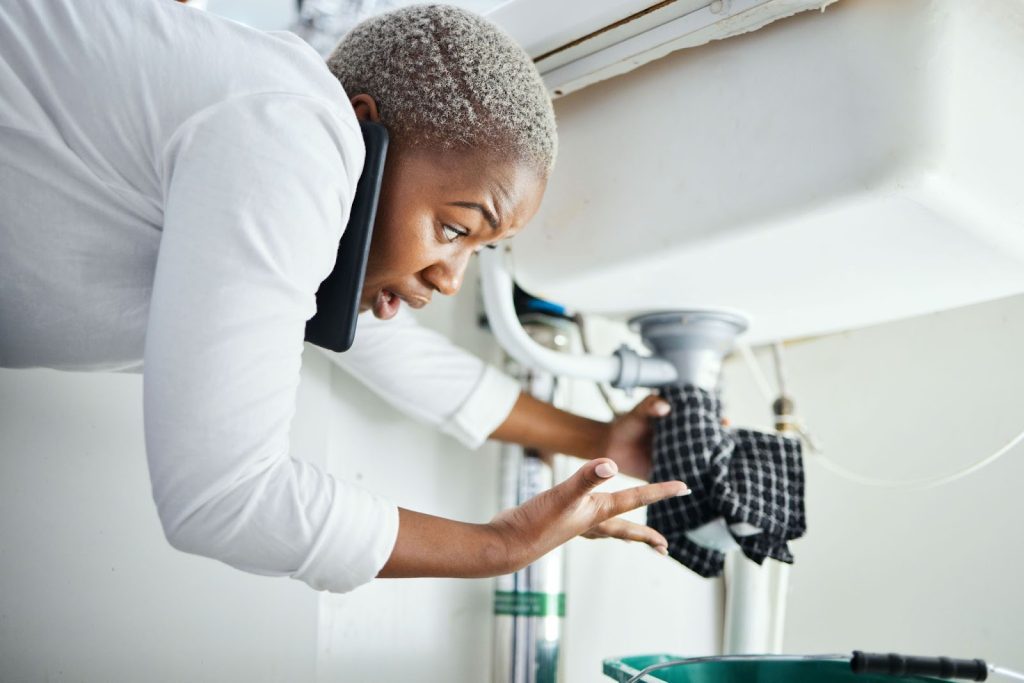
The tough reality is that, sometimes, leaks are unavoidable, and preventing them is impossible. Homeowners will do all they are able to do to stop a leak from happening, and yet it still occurs. Thankfully, there are practices you may want to implement and tools to utilize to catch leaks early before they have a chance to cause significant damage. Here’s what you need to know:
- Install water leak detection tools — There are many types of water leak detection tools that homeowners utilize to help avoid plumbing-related issues. Some detectors are made to be placed near items and appliances prone to leaks and will alert you when they come into contact with moisture and water.
However, other detection tools are more sensitive and can detect leaks before they physically come into contact with water. These devices will help you detect plumbing problems in time to have it professionally repaired and entirely avoid extensive damage to your home. - Watch out for mold and cracks — Leaky pipes often result in major water damage in your home. The telltale signs of leaks include dark, damp spots on walls, floors, and ceilings. Common causes of these leaks are:
- Sinks
- Refrigerators
- Showers and bathtubs
- Toilets
- Washing machines
- Ice makers
- Water heaters
If you see any chipped, peeling, or bubbling paint or wallpaper or black marks or specks on your walls or ceilings, that could be a sign you have a leak. Also, look out for musty, moldy smells and areas of discoloration. Make sure you fix cracked caulk, especially around windows, doors, showers, and tubs.
Unfortunately, when it gets to this point, plenty of damage has likely occurred. The good news is you found the leak when you did, and taking prompt action will mitigate damage.
- Schedule professional plumbing inspections — If you are concerned about your plumbing system and want to make sure you catch any leaks early, make sure to schedule a trusted professional to inspect your house.
If you aren’t familiar with pipes and other plumbing components and aren’t entirely sure what you’re doing (most homeowners fall into this category), it’s easy to overlook a small issue that could lead to something bigger down the road.
A plumbing professional will be able to pinpoint any problem related to a plumbing leak repair quickly and will know how to tackle it. They will also be able to tell you what to do to prevent leaks in the future that you might not be doing. Professional plumbers will be able to fix any leaks quickly and effectively, ensuring it’s done correctly the first time.
Salisbury Plumbing: Superior Plumbing Services in Utah County
Unfortunately, leak prevention isn’t enough to stop pipes from leaking, and Salisbury Plumbing is here to help with plumbing leak detection and repair.
The Salisbury Plumbing team always provides personalized, superior plumbing services to commercial and residential customers across Utah County. We specialize in small and large condo and townhouse projects, as well as custom homes. We are also available for 24-hour emergency services.
We’ve built our reputation on a foundation of trust, hassle-free service, and high-quality materials and equipment. Our team will only fix what needs fixing while making sure you are aware of any other plumbing problems we might find in your system.
Whether you’re in Orem, Lehi, Provo, Springville, or somewhere in between, call Salisbury Plumbing and let us assist you with your plumbing.

